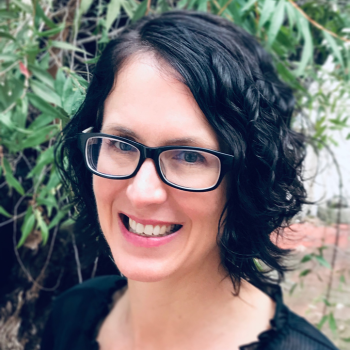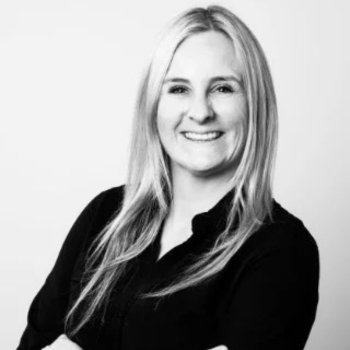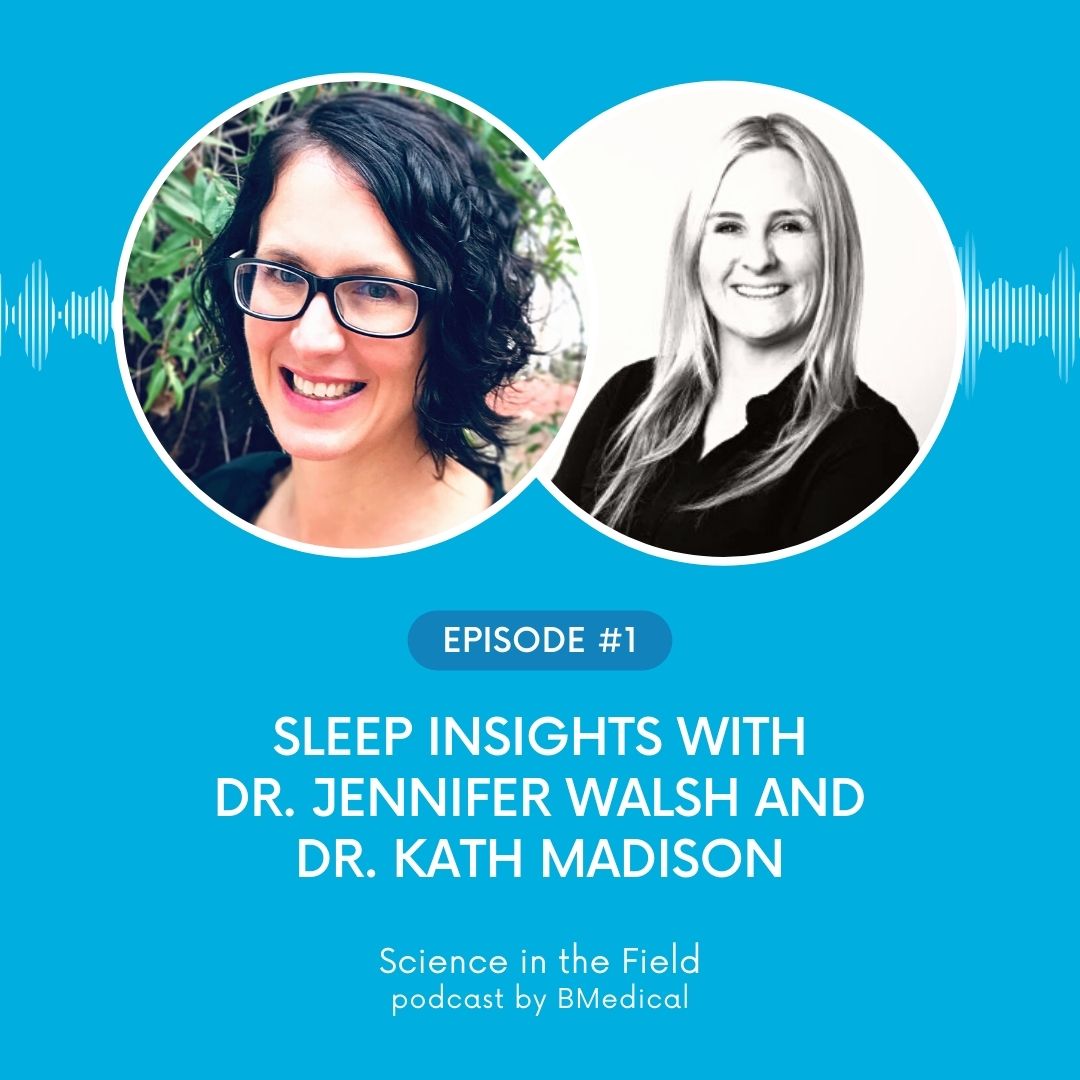Sarah Hull: Are there any specific papers? I know there’s some really interesting stuff coming out of South Australia in that space right now. Is there anything that jumps to mind?
Dr. Kathleen Maddison: A lot of the translational stuff really interests me. It’s not in my specific area of research, but I do love reading it. I like everything really structured when we study, we’re going to bed at the same time, and we do our interventions in a really strict routine way, which is not real life.
So I like seeing when people take information and apply it out to the real world; and I think the sporting community is a big one. There’s a lot of people that are looking at how sleep impacts their sporting performance and their mood, and then how the mood impacts how they perform on the field.
I think some of that research is fascinating and comes with a whole new set of difficulties, but it’s really interesting to see what happens in smaller research studies being passed out into the wider community.
Sarah Hull: We just heard recently that our light therapy device is being used by some big sporting figures and big sporting teams around the world. So that’s been really exciting to see and get some of their feedback about how that’s working in situ, and how it’s impacting their performance as they travel.
Dr. Jennifer Walsh: It’s so good that we have these technologies. It’s so great.
Sarah Hull: Absolutely. Given that I’m talking to two powerhouse women on the eve of International Women’s Day, as leaders in the field, how do you support and encourage other women pursuing careers in sleep research and related disciplines?
Dr. Jennifer Walsh: I think I probably have the same attitude regardless of gender. and I’m generally pretty honest about my own personal experiences throughout my, my career and how I’ve juggled work and family, sort of family life balance.
Then, then there’s obviously, career decisions as well. I think I just try and support everyone in terms of what they’re trying to get out of their life, when they’re making their own decisions, really. I wouldn’t say I specifically do something different for women versus men.
Dr. Kathleen Maddison: I agree. I think it’s across the board. Anyone that wants to enter into science or research, we would love to have them, but you want to have your eyes wide open in terms of what’s expected, and the challenges in the field and how to manage those challenges. A lot probably comes around to deciding what you want from both your life and career, and then trying to make the two merge. It doesn’t always work seamlessly, but supporting people where you can so that you can get the best out of both sides.
Dr. Jennifer Walsh: I’ve got five or six PhD students and they’re all, at the moment, they’re all female and at different stages in their life, and they’re all fabulous in their own way. We are not short of women who are interested in going into the sleep field, and obviously very clever women, so that’s great.
Sarah Hull: I’m sure we could do a whole deep dive on on your tips for research, and working in research full stop. But do you have one takeaway?
Dr. Kathleen Maddison: I think having a passion, like we discussed at the beginning. People who have fallen into sleep, but have stayed here. And we’ve stayed here because the field, the colleagues, the area, is really inclusive. The people across multiple disciplines, across the science, the engineers, the medical space, all collaborate really well. I think being in a really collegiate environment makes for quite a happy working line, and the field is so new and there’s so much exciting stuff happening.
It really keeps you motivated. If you didn’t love it, you would struggle to stay in the space. Finding something that is actually your passion is not always possible, but finding something that excites you and having discussions like this, it’ll make it for an easier work life balance.
Dr. Jennifer Walsh: My tip would be that everyone needs to have a Kath at their workplace. So I’m sorry for those people who don’t because there is only one of her. But I think the team makes or breaks it, don’t they? It’s definitely important.
Sarah Hull: Looking ahead, what do you envision for the future of sleep research, particularly regarding its impact on overall wellbeing and healthcare?
Dr. Jennifer Walsh: I believe we are so close to everyone recognising that sleep is the magic bullet. I think we’re on the cusp. There’s a lot of groundswell. Hopefully in the next few years it’s just going to be widely recognised how important sleep is across the board.
Dr. Kathleen Maddison: I couldn’t agree more, Jen. I think we are on the precipice. I can feel that nutrition and exercise has long been spoken about, but I feel like people are just getting on board to the sleep side of things, and it might not be the last piece, but it will be a really integral piece of the puzzle to help with overall wellbeing.
Sarah Hull: I think it’s so interesting. We’re starting to hear it talked about in so many different fields now. So it’s not just the sleep research people talking about sleep. It features in neurodegeneration, in ICU, and all the different disciplines. They are starting to come together to recognise that if sleep isn’t right, then the other stuff isn’t going to be either. It’s such an exciting time – obviously coming from a room full of sleep nerds.
Dr. Kathleen Maddison: No bias here at all!
Sarah Hull: To finish off, what books or resources would you recommend for our listeners? And they don’t have to be sleep; it can be anything that’s getting you excited or that you’re into at the moment.
Dr. Kathleen Maddison: Well some really good resources on the sleep side of things. The Sleep Health Foundation has excellent fact sheets. I really like the Matthew Walker book around sleep; it is a little bit like ‘you are going to die if you don’t sleep well’ but he’s softened that scare message side of it over the years. But the facts that are in there, there’s good references. As scientists I’m always biased to a good solid reference to just to open people’s eyes to the complexity and variability of sleep and how it changes over the course of your life. I think it’s a nice starting point.
Dr. Jennifer Walsh: I agree. And I haven’t read it yet, but I’ve heard good reviews about Russell Foster’s book, Life Time as well. I’m looking forward to reading that. Obviously there’s our courses that we have at the Centre for Sleep Science, and I think the ASA are getting a lot of quality resources out to GPs, psychologists, pharmacists. It’s great that our professional association is coming on board to translate the knowledge that’s out there to the general public.
Sarah Hull: What are your favourite podcasts? Hit us with them.
Dr. Kathleen Maddison: Ooh, I chop and change. I’m listening to a science backed podcast with Peter Attia at the moment. It runs a full spectrum of different topics, not just sleep. I was learning about back pain this morning on my drive in.
Dr. Jennifer Walsh: In terms of sleep, I would say the AASM podcast, Talking Sleep is quite informative. I think they’re monthly podcasts and it all relates to sleep. A general one that I really like is The Imperfects. You may have heard of that as well. It’s really broad, and more about mental health, but I’ve learned a fair bit from that too.
Sarah Hull: Excellent. There’s some good ones to add to our list. Thank you guys.


